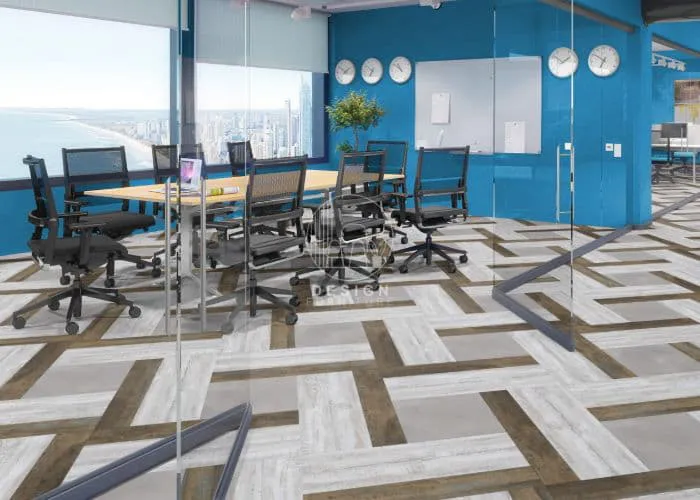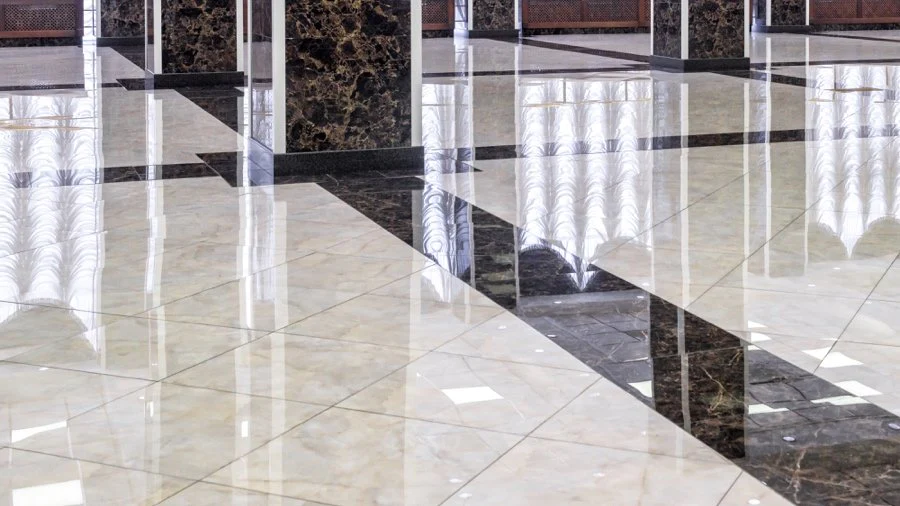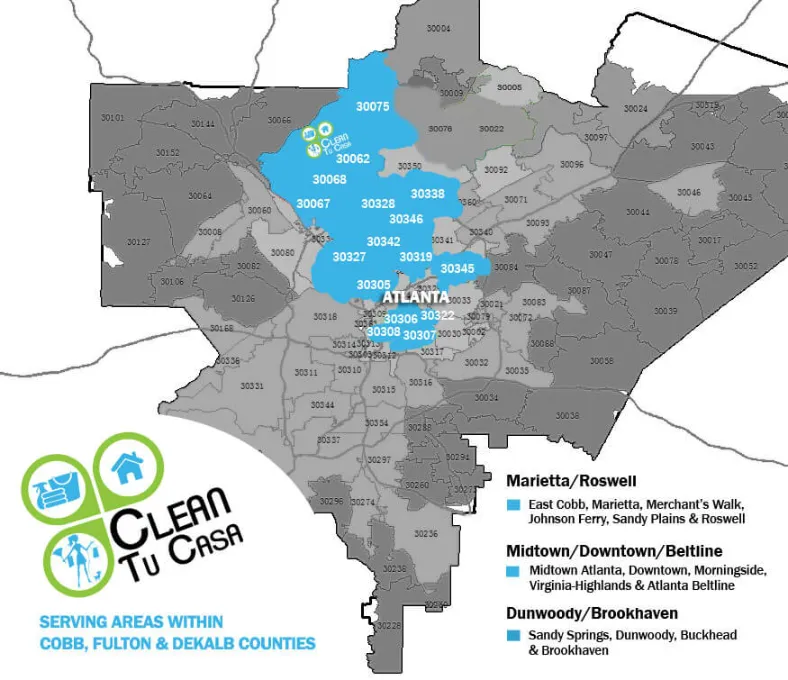Lifestyle
Published On
DISCOVER COMMERCIAL FLOOR CLEANING TECHNIQUES FOR YOUR OFFICE FLOORS
Written By
While first impressions might not always be correct, they do count. A clean space is essential for any business to make a great first impression on its clients. You might not know this, but your floors are the first thing clients notice when they step into an office space. Dirty floors can discourage potential partners. Clean floors also offer a hygienic environment for workers to function optimally.
However, it’s one thing to clean your floors and another to clean them effectively. There is a wide variety of flooring materials used in commercial spaces. They include vinyl, hardwood, laminate, carpeted, tile, natural stone, concrete, and many more. The efficacy of the cleaning technique you apply depends on the floor you have in your space.
This article will tell you all the different floor types and how to clean and care for them specifically to ensure durability and maintain the aesthetic of your commercial space.
UNDERSTANDING DIFFERENT COMMERCIAL FLOORING MATERIALS

Your choice of flooring material usually depends on the aesthetic your business is going for, cost-effectiveness, and durability. It is wise to understand the different flooring materials in your office so you can adequately care for them, as this ensures a long lifespan for your commercial floor. Each floor has its unique cleaning dos and don’ts. Some mistakes on your commercial floor can get really expensive, so it is best to know the kind of floor you have to learn how best to clean it.
1. Concrete
This type of floor is usually found in malls and warehouses. It is popular because it gives a contemporary look. It is affordable, durable, resistant to the elements, has low maintenance costs, and is environment-friendly. It doesn’t retain water, so it is resistant to mold and mildew. This invariably means that it helps improve air quality. Concrete can also be stained, meaning you can mimic any other floor of your choice. Concrete can be a bit difficult to keep clean, but with proper care, it can last a very long time.
2. Vinyl
This type of floor is usually found in schools, hospitals, and hotel lobbies. It is moisture-resistant, durable, easy to maintain, and comes in various colors and patterns. They can become stained and dirty with time, so you must understand how to care for them. The surface can also be scratched easily, so you need to avoid abrasive cleaners.
3. Carpet
Carpeted floors absorb noise and provide warmth in cold climates. However, this option is less durable than some of the others. It can develop mold and mildew if exposed to a lot of moisture and must be removed. It is also easily stained and damaged, so extra care must be taken with carpeted floors to prolong their lifespan.
4. Hardwood
It has an exquisite appearance and is quite durable. It is also more expensive than most of its counterparts. It is effortless to clean and maintain. However, just like with carpets, it is not best of friends with moisture. Moisture causes cracks, crowning, and buckling in hardwood floors. You must keep this in mind while cleaning.
5. Tile
Tile floors are very aesthetic and durable. They won’t scratch or lose their shine quickly. They are also very easy to care for and require just a few cleaning materials. This doesn’t mean they don’t need proper cleaning, as dirt, bacteria, mold, and mildew can build up in the grout between tiles. Thus without the right care, dirty tiles can put people at risk of allergic reactions and infections.
6. Natural Stone
This includes marble, granite, and limestone floors. They give your space a sleek and elegant look. They are porous, meaning they have holes that make them susceptible to stains and spills. The spillage embeds itself into the stone through the holes, creating a permanent stain. Sealing your floors prevents this and makes the spillage lie on top of the stone instead of seeping through. When caring for natural stone, you need to avoid cleaners that are too acidic or alkaline, as they destroy the sealant. Use neutral cleaners and wipe up the spillage on natural stones as quickly as possible to avoid setting stains.
COMMERCIAL FLOOR CLEANING FOR EVERY FLOOR TYPE

1. CARPETED FLOORS
Dirt and allergens can accumulate in the fibers of your carpet, leading to a decrease in the beauty of your carpets and possible health problems. Daily vacuuming of carpeted floors and spot cleaning is required to prevent this. Occasional deep cleaning of your carpets is also necessary to elongate their lifespan. The best methods for deep cleaning are hot water extraction and dry carpet cleaning.
- The hot water extraction method is ideal for extremely dirty areas with heavy foot traffic. The hot water extraction machine heats water, injects it into the carpet, agitates the dirt and stains within the carpet fibers then suctions the entire mixture out of the carpet. This method eliminates dirt, colors, and moisture all at once.
- Dry carpet cleaning is ideal for touch-ups in between hot water extraction sessions. Here, a dry carpet cleaning compound is applied to the carpet, which is groomed with a brush or a dry foam cleaning machine. The solution is then left to dry and crystallize. The crystals which contain soil and debris from the carpet are then vacuumed up.
The frequency of deep cleaning depends on the area's foot traffic. Areas with high foot traffic should be deep cleaned 1-2 times a month, while areas with very light foot traffic should be deep cleaned at least twice yearly.
You should spot-clean some areas of your carpet occasionally. To do so, mix ¼ teaspoon of dish soap, one tablespoon of vinegar, and one cup of warm water. Sponge the stain with the mixture and blot until the stain disappears.
Cleaning products to avoid with carpeted floors are;
- Bleach or turpentine
- Laundry detergent
- Abrasive cleaners
- Vinegar
2. VINYL AND LINOLEUM FLOORS
Vinyl and linoleum floors are very durable and easy to maintain. However, vinyl floors get stained and dirty with time; therefore, regular sweeping and mopping are essential to prevent the buildup of dirt and grime.
When sweeping, use a soft bristle brush attachment with your vacuum cleaner to prevent the floors from scratching. A mild cleaning solution while mopping your vinyl and linoleum floors will prevent damage in the long run. Also, dry the floors properly after mopping to avoid water damage. You should also clean up any spills immediately so the stains don’t set.
Because these floors are easy to clean, you might be tempted to use mop-and-shine products. However, they’ll leave a layer of film behind after use, so you should avoid them. Wax polish and harsh chemicals such as scouring powders and ammonia will also damage the floors and should be avoided entirely.
3. TILE FLOORS
Tile floors are popular in commercial settings because they are low maintenance and have a great aesthetic. With a good clean, they can look brand new despite their age. Cleaning tile floors is very simple with the following steps;
- Daily sweeping/ vacuuming, especially in high-traffic areas.
- Mopping: You need to mix a mild detergent with warm water for mopping. Be careful so as not to miss any spots. And for large spaces, change the mopping water frequently as the water can get dirty. Cleaning with dirty water leads to film and dirt streaks on the tiles.
- Dry the floor with a clean mop to prevent the formation of water spots.
Grout cleaning is an essential aspect of maintaining your tile floors. Simply spray a grout cleaner or mild bleach solution on the grout, wait a few minutes, and rinse off. Wait for as long as 10 minutes for tougher stains. Over time, moisture, mold, and debris can begin to permeate your tile and grout, causing degradation. Applying sealants on your tile floor will prevent this from occurring.
Some cleaning products will do more harm than good on your tile floors and should be avoided altogether. They include;
- Oil-based cleaners
- Abrasive cleaners
- Ammonia and bleach-based cleaners
4. HARDWOOD AND LAMINATE FLOORS
Laminate floors and hardwood floors require gentle cleaning to avoid scratching the surface. Gently sweep or vacuum your laminate floor with a soft bristle brush attachment and mop afterward with a mild cleanser.
The same applies to hardwood floors, although you must avoid liquids of any kind with them. Hardwood floors require moisture protection as moisture damages the wood. Dry cleaning is the way to go for this type of floor. Varnishing or lacquering your floors frequently will also go a long way to protect your floor from moisture.
The best way to clean is with a microfiber mop, which gathers dirt and debris without spreading it around. Specialized hardwood cleaners can be used to clean tough stains.
When cleaning your hardwood floors, be sure to avoid the following;
- Vinegar and ammonia
- Oil soap
- Water
- Hydrogen peroxide
- Bleach
- Sandpaper
- Steam cleaners
5. NATURAL STONE FLOORS
There are several natural stone floors, including marble, granite, sandstone, limestone, and a few others. They are relatively easy to clean. Regular sweeping and mopping are essential to prevent dirt and grime build-up.
While mopping, wring the microfiber mop properly to prevent water from staying on the surface and getting stuck in the grout. It is also essential to use microfiber as it gets the job done without being abrasive.
Use pH-neutral cleaners for your floors so as not to ruin their sealant. Stone-specific products are also recommended for cleaning your natural stone floors effectively. They include;
- Microfiber Scrubber Mop Pads: They are aggressive without being abrasive. They clean the floors effectively without scratching the floors.
- Microfiber Mop
- pH-neutral Floor Cleaner
While cleaning and caring for your natural stone floors, products to avoid are;
- Acidic or Alkaline cleaners like lemon juice, vinegar, or ammonia
- Abrasive cleaners
- Bleach
CONCLUSION
You must properly understand the cleaning techniques that work best for your floor. This will ensure that you get the best out of it. Your floors will last long and look good while doing so. It will also create a hygienic and welcoming environment for both clients and staff.
Clean Tu Casa is the team to call for any cleaning service in Atlanta. We offer Atlanta residential cleaning services and corporate cleaning services. We provide commercial cleaning services in Marietta, Buckhead, and Brookhaven areas. Whether you want a one-time, weekly, bi-weekly, or monthly cleaning, simply reach out to us for your free quote today.
